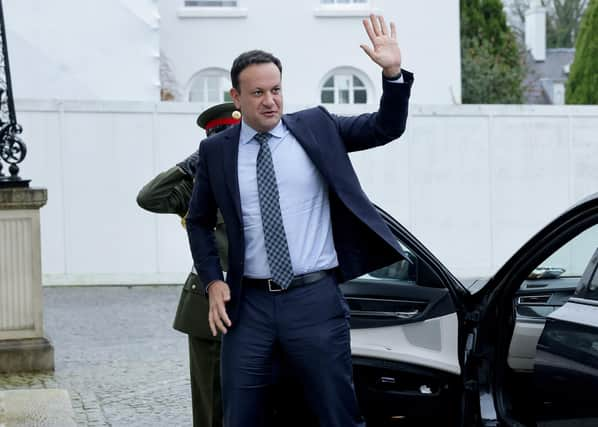Neil McCarthy: What exactly is the value, or even the point, of a united Ireland?


Many Irish nationalists seem to be simply angry. It’s almost as if no-one should have the right to question their cherished beliefs.
Joe Brolly, for example, immediately attacked the pedigree of one of the authors of the report, professor John FitzGerald. Playing the man rather than the ball might be okay in Gaelic football; but to seek to discredit John FitzGerald on the basis that he is the son of former Taoiseach Garret FitzGerald who “supported Margaret Thatcher’s position on the hunger strikes” and “loathed our community” is hardly a sign of intellectual confidence about the united Ireland project.
Advertisement
Hide AdAdvertisement
Hide AdOthers such as the outgoing Taoiseach, Leo Varadkar, have dismissed the necessity to look at the costs of a united Ireland at all, airily declaring that “unification should never be about money”.


Unionists, meanwhile, have for the most part sensibly avoided stepping into this intra-nationalist debate.
And they can derive quiet comfort from a poll of the Irish public taken in the immediate aftermath of the report showing 42 percent of them unwilling to pay increased personal taxes to fund a united Ireland and 10 percent who would not vote for a united Ireland, regardless of the cost.
Nonetheless, a debate centred upon the costs of a united Ireland risks making it appear that its value is something to be taken for granted.
Advertisement
Hide AdAdvertisement
Hide AdWhich begs the question, what exactly is the value, or even the point, of a United Ireland? As a united Ireland is an almost entirely nationalist construct, let’s look at it through the lens of Irish nationalism.
Nationalists used to argue that a United Ireland was the way to remedy the dissection of the Irish nation’s territory by an alien imperial power. This argument rested upon the assumption that there was one Irish nation.
Charles Townsend in his 2021 book “The Partition” has argued that “nationalist analysis of Ulster unionism combined contradictory elements: either unionism was illusory, or it was real but held on to by a small minority” whose “bigotry” was “exploited and controlled by Orange leaders...under the influence or even the direct control of British Tories”.
To accept that Ulster unionists are on the other hand real and numerous and not under the control of outsiders makes the dissection argument impossible to sustain; and by accepting the Good Friday Agreement as the basis for Northern Ireland’s constitutional future, have republicans not accepted all these realities? They certainly no longer argue that unionists are Irish.
Advertisement
Hide AdAdvertisement
Hide AdSo if there is no historical wrong to remedy – as there was no indivisible Irish nation to be artificially divided by outsiders – what is the point of ending partition?
Some nationalists did used to have another argument.
There was something called the “All for Ireland League” in Cork in the early years of the 20th century. Under the leadership of William O’Brien, this organisation - which was a breakaway from the then dominant Irish Party - believed in all-Ireland self-government based upon “a combination of all the elements of the Irish population in a spirit of mutual tolerance and patriotic goodwill, such as shall guarantee to the Protestant minority of our fellow-countrymen inviolable security for their rights and liberties, and win the friendship of the people of Great Britain without distinction of party”.
That is surely the best nationalist argument for a United Ireland; yet it is not one you will hear today.
Instead we hear from Ireland’s Future et al that reconciliation is not even necessary as a pre-requisite for unity.
Advertisement
Hide AdAdvertisement
Hide AdIf building a new Ireland which can command the loyalty and affection of nationalists and unionists is not the goal of republicans and nationalists, then that leaves the old Hibernian dream: getting the 80 percent of Catholic nationalists on the island into a situation of permanent majority rule over the 20 percent Protestant unionist minority.
There is no value in that at all, certainly not for unionists anyway.
• Neil McCarthy is a writer and teacher based in Dublin and London